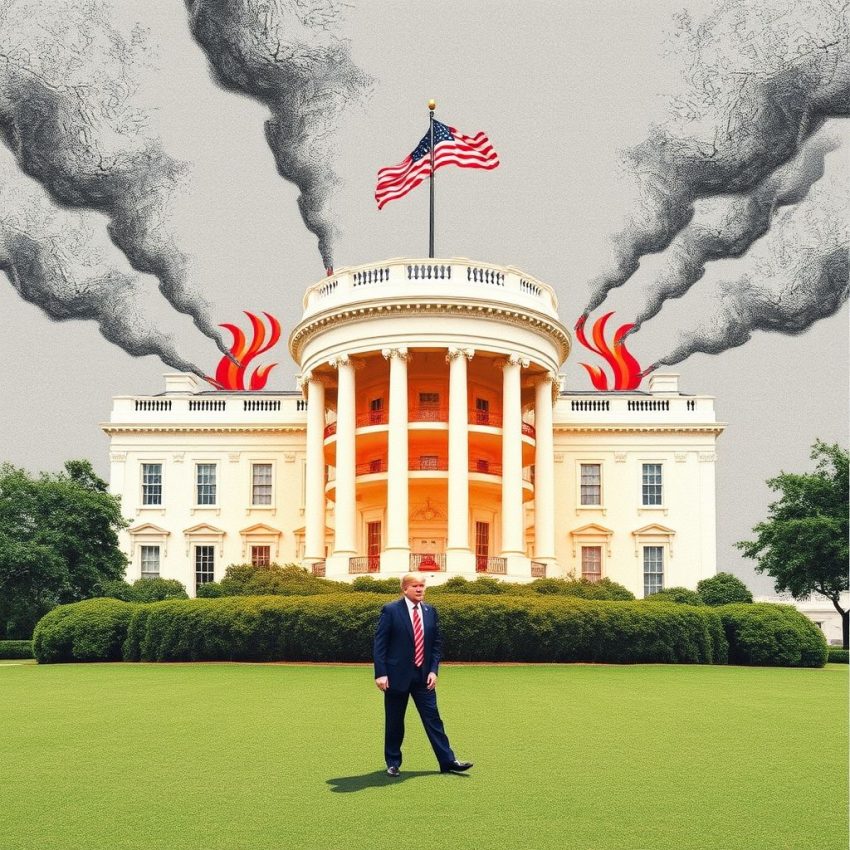Trump's FTC Purge: A Legal Showdown Brewing?
Former President Donald Trump's recent move to dismiss two Federal Trade Commission (FTC) commissioners has ignited a firestorm of controversy, setting the stage for a potential legal battle over presidential authority and the independence of regulatory agencies.
Trump's actions, justified by his claims of the FTC overstepping its authority and pursuing a politically motivated agenda against his businesses, have been met with sharp criticism from Democrats and some legal experts. They argue that the dismissals undermine the FTC's bipartisan structure and could jeopardize ongoing investigations, including those into Big Tech companies.
The FTC, an independent agency tasked with protecting consumers and promoting competition, traditionally operates with five commissioners, no more than three of whom can be from the same political party. Trump's removal of Rohit Chopra, a Democrat, and Rebecca Kelly Slaughter, the acting chairwoman, leaves the commission with only three members, two Republicans and one Democrat. This shift in balance raises concerns about the direction of the agency under a potential second Trump administration.
The legality of Trump's actions remains a contentious issue. While the president has the authority to remove executive branch officials, the extent of that power regarding independent agencies like the FTC is less clear. The Supreme Court's recent decision in Seila Law LLC v. Consumer Financial Protection Bureau limited presidential authority to remove the director of the CFPB, a single-director agency. However, the FTC's multi-member structure distinguishes it from the CFPB, making the legal precedent less applicable.
This ambiguity leaves the door open for legal challenges. Already, speculation abounds that the dismissed commissioners or affected parties might sue, arguing that the dismissals violate established norms and potentially the law itself. Such a legal battle could have significant implications for the future of independent agencies and the balance of power between the executive and legislative branches.
Beyond the legal ramifications, the political fallout is undeniable. Democrats accuse Trump of attempting to politicize an independent body and shield his businesses from scrutiny. They also argue that weakening the FTC benefits large corporations at the expense of consumers and fair competition. Republicans, on the other hand, largely defend Trump's actions, echoing his claims of FTC overreach and bias.
The situation is further complicated by the ongoing debate surrounding the future of antitrust enforcement. The FTC has been increasingly active in investigating and challenging mergers and acquisitions, particularly in the tech sector. Trump's intervention raises questions about the future trajectory of these investigations and the overall approach to antitrust enforcement under a potential second Trump term.
The FTC firings represent more than just a personnel change; they signify a larger struggle over the role and independence of regulatory agencies in American governance. The coming weeks and months will undoubtedly see further developments, potentially including legal challenges and heightened political scrutiny. The outcome of this brewing battle will have far-reaching consequences for the future of consumer protection, antitrust enforcement, and the balance of power in Washington.
Don’t miss out on this exclusive deal, specially curated for our readers!
This page includes affiliate links. If you make a qualifying purchase through these links, I may earn a commission at no extra cost to you. For more details, please refer to the disclaimer page. disclaimer page.

